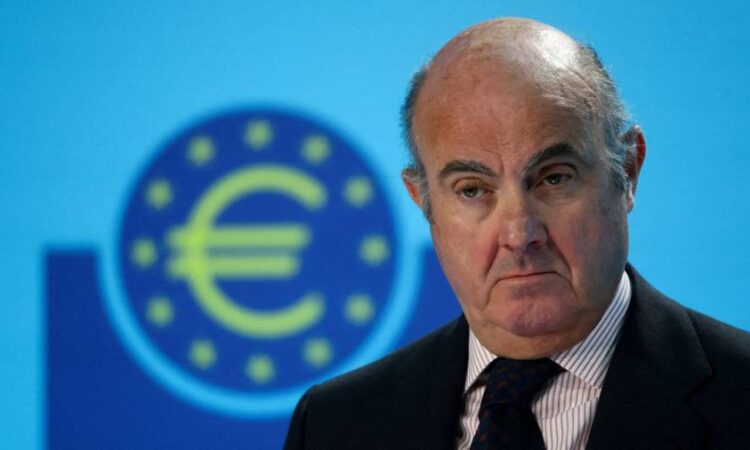
The European Central Bank has warned that rising risks at so-called shadow banks have left EU regulation “ever more insufficient” to prevent further financial market shocks from triggering a wider liquidity crisis.
Luis de Guindos, vice-president of the ECB, said there were “increased risks for the financial system” from shadow banks, such as hedge funds, asset managers, pension funds and insurers, which have grown rapidly in the past decade but remain more lightly regulated than banks.
“Interconnectedness between the banking and the non-bank financial sector remains high, increasing the scope for contagion,” de Guindos told a financial conference in Frankfurt on Tuesday, adding that the sector was particularly exposed to rising interest rates and falling asset prices.
His comments indicate that, despite the recent banking turmoil in the US and Switzerland, the ECB is more concerned about risks from shadow banks. With many non-banks offering daily redemptions, de Guindos called on non-banks to boost liquid assets to cope with a potential flight of investor funds.
Non-banks had grown rapidly in the past decade, providing 26 per cent of credit to non-financial companies in the eurozone last year, up from 15 per cent in 2008, de Guindos said. The total assets of eurozone shadow banks had more than doubled in the past 14 years to €31tn.
This alternative source of funding benefits corporate borrowers by allowing them to “diversify their funding sources and facilitates increased cross-border funding”, de Guindos added. But he warned that rulemaking had not kept pace with the sector’s rising risks.
There had been some “de-risking” among non-banks in recent months, such as by shifting from high-yield corporate debt to safer government bonds, he said. However, their exposure to property markets had “increased markedly . . . rendering institutions vulnerable to ongoing price corrections in real estate”.
Many non-banks are exposed to a “liquidity mismatch” between holding high levels of illiquid assets, such as property or corporate debt, while allowing investors to withdraw funds on a daily basis without prior notice. The liquidity crisis in the UK pension sector after a sell-off in gilt markets last year had highlighted the risk of “an insufficient preparedness to meet large demand for liquidity, especially from margin calls”, de Guindos said.
He added the ECB was also concerned about levels of “synthetic debt” — leverage created using derivatives or other complex financial instruments — at non-banks. Family office Archegos Capital Management collapsed in 2021 after suffering heavy losses on the total return swaps it used to make risky bets on shares.
De Guindos proposed four ways for EU policymakers to tackle these risks. First, he said non-banks that offered daily redemption to investors should hold high enough levels of liquid assets to cope with a potential flurry of withdrawals.
Second, EU efforts to tighten regulation of money market funds “should be pursued as a matter of priority” to catch up with international initiatives launched after the sector’s liquidity shock in March 2020. The EU has said it can implement the globally agreed reforms only after the next European Commission mandate, which begins in 2025. Bank of England governor Andrew Bailey has publicly called for the EU to move faster.
Third, de Guindos called for improvements in “data quality and coverage and information sharing” to assess the risks of “synthetic leverage” at shadow banks. This is an area that UK authorities are examining as part of a debut stress test of the financial system and the US Securities and Exchange Commission has also flagged as a concern, especially at hedge funds. Finally, he said non-banks needed “to enhance margining practices and liquidity preparedness to meet margin calls”.
The Basel-based Financial Stability Board, which brings together top policymakers, called in December for “urgent work” to address gaping holes in regimes to deal with failing non-banks, such as clearing houses and insurers, whose operations stretch across borders.
Pablo Hernández de Cos, chair of the Basel Committee on Banking Supervision, said in March that recent financial market shocks had highlighted the need for a tightening of rules that guard the banking system from a spillover of problems at non-banks.






